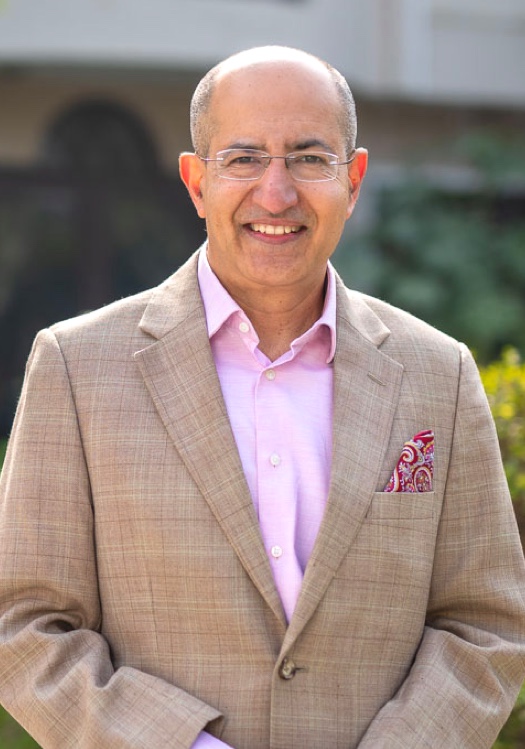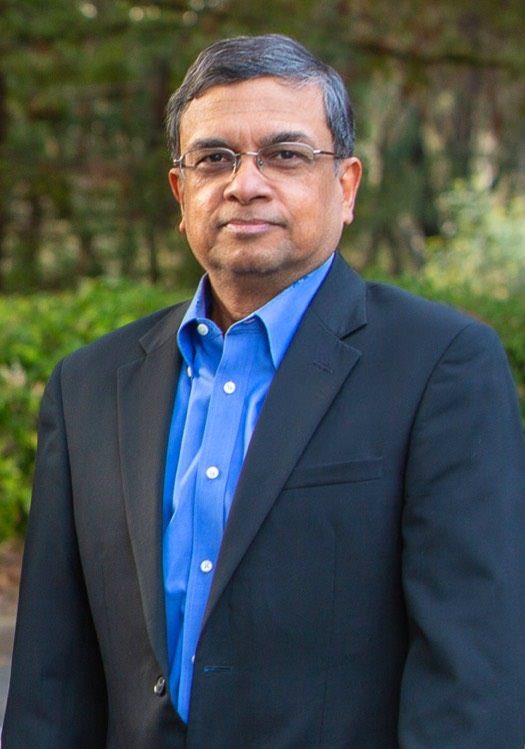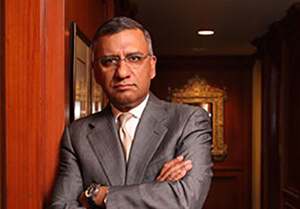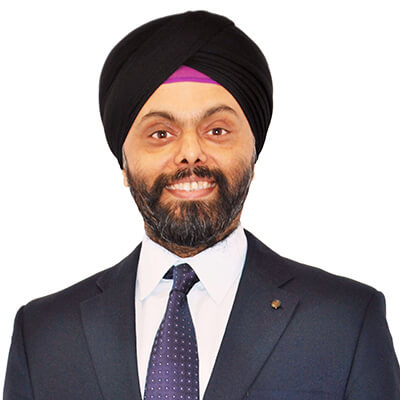At a time technology is disrupting businesses on a regular basis, it is vital to amalgamate those which are integral to build an ‘intelligent business’ than playing a wait and watch game. In a service industry like hospitality, it is all the more critical to adopt consumer facing technology with shortest of delays so that the first-mover advantage can be reaped. Artificial Intelligence (AI) and Machine Learning (ML) are such compelling technological innovations which help hotel operators to be really intelligent to stay ahead of the competition. These tools will really help hotels to understand the customer preferences in advance and offer tailor-made offerings even before the customer checks into the hotel. How far the hotel players are amalgamating such technology tools into their day-today affairs? Akshay Nayak tries to find out answers:
We have seen in recent days how even global leaders started talking about Big Data from platforms like World Economic Forum in Davos. One who spoke extempore about the power of Big Data was none other than our own Prime Minister, Narendra Modi. ‘Transformation driven by technology is taking place everywhere, and data presents us with great opportunities to solve such issues,’ he said. ‘We are not just a networked society, but today there is big data, artificial intelligence and robots. Whoever controls data is the most powerful and can shape the world,’ he added.
Whether everyone speaking about technology and big data understands it or not, the influence of Big Data, Artificial Intelligence, etc. have started having their impact in one way or the other in peoples’ everyday life.
As per a white paper released by leading travel management company FCM Travel Solutions in collaboration with market consultants, KPMG, on ‘Digi Smart Indian Business Traveller’, about 84% of the 835 companies surveyed use some AI technologies in their businesses. Noting how AI applications are changing the travel services, the report says that it is “changing the rules” for travel industry. Global travel brands such as Marriott, Uber, Hilton are deploying AI solutions to understand the behaviour of travellers and identify attributes to enhance revenues and travellers experience.
Relevance for Hotels
The hospitality industry that essentially focuses on the customer-service segment, its players have always been frequenting to provide their guests with augmented personalised experience. Till date, traditional marketing tools have helped most of the hospitality businesses to tap their target base, but to focus on the current day, the modern-day travellers and guests are well-versed and do a gazillion of research before planning for their stays at the hotels where they essentially look out for a personalised and best-in-class experience. The industry professionals believe that Artificial Intelligence (AI) has entered the hospitality business as a boon to the hoteliers that helps them to offer a multitude of amenities and services to their guests while saving up the important resources.
By utilising the full potential of AI software, hotel staff can capture a whole range of information about their guests and customers and use that knowledge to offer insightful experiences to their guests at all touch points like travel, stay, and also upselling other products and services like F&B, Spa and wellness, etc. They can understand the customer preferences, travel choices, their journey patterns, payment methods, etc.
Confirming the need of Artificial intelligence in the hotel spaces, Shekhar Mhaskar, VP, Isobar, a digital innovation company, expresses that in this day and age, Artificial Intelligence and Machine Learning is omnipresent in almost every industry helping to improve service and efficiency. Especially in those that are highly consumer-facing, like the hospitality business which revolves around customer satisfaction. “And, with the ever demanding and ever-evolving modern-day customer, it only becomes imperative that the hospitality industry rides the AI wave,” adds Mhaskar.
Expressing similar views, Sudeshna Datta, Executive VP & Co- Founder, Absolutdata Analytics pointed out that AI assistance equips travellers with the ability to search and query travel options against very specific criteria for which they receive instantaneous responses. She ascertains that the hotels will have to adapt to respond in the same kind while also being extremely flexible in what they can offer guests regarding packages, rooms, amenities, and other services. She trusts, “Eventually, these technologies will become travel assistants to customers leading to the best available deals.” Datta feels that it’s important for hotels to discover maximum information about their guests to create targeted customers and profiles which helps to tailor the experience according to specific individual needs.
Catching up Act
The hotel industry although are adapting the latest technologies to deliver experiences in tune with the customer experiences, the adoption is not widespread. While AI, machine learning, etc. can actually revolutionise the systems and processes and deliver experiences to customers, there is certain reluctance to adopt them in the name of ‘personalisation’. However, there are industry leading examples like the AI-based Concierge, Connie, at Hilton Hotels. Connie is a two-foot bipedal robot which guests could interact with while arriving at the hotel.
While distribution partners like OTAs and other partners investing in creating AI enabled platforms to deliver seamless searching, booking and post-booking experiences to customers, hotels cannot remain insulated for long.
Speaking about AxisRooms’ efforts to maximise their clientele’s benefits through the use of right technology platforms Anil Kumar Prasanna, CEO, AxisRooms surmises, “Through the Dynamic Pricing Engine, we have been working on AI and Machine learning to develop our Revenue Management Systems, there is a dearth of capable revenue managers in the industry. The system learns from data of budget, demand & supply, competition pricing, season, events and festivals, etc., predicts the right pricing and also reads the impact of the predicted pricing like booking value, no. of bookings, no. of room nights, price point, etc.”
Even leading OTAs in India like MakeMyTrip is investing heavily on AI and machine learning enabled Chatbots, Voice based booking tools, etc. to enable even to get into the vernacular market which is still reluctant to book travel products because the content is in English. “Conversational e-commerce is going to be the next wave in travel e-commerce,” said Rajesh Magow, CEO, MakeMyTrip while participating in an industry conference recently.
Mhaskar spoke on a varied indulging facet by saying that AI solves all the hurdles around productivity & labour costs while ensuring consistent, streamlined production processes for accurate and immediate delivery of information and service to customers. He says, “Travellers are now able to skip OTAs and take advantage of AI-powered booking engines like Allora to book directly with the hotels and get the best bang for their buck.” He envisions that AI can offer other services like spa treatments, dinner reservations, conference facilities, airport transfers, etc. by mining data of past experiences & characteristics of the guests, and build a personalised array of services much in advance before they arrive.
Big Data: Hotel business’ need of the hour
With cross-sell and up-sell now being challenging tasks in the well-informed clients’ market, Big Data Analysis has come into the notice of almost all the businesses to understand individualistic needs of clients based on their past preferences. Many hotels have undergone a sea-change in their services like the old-traditional rooms revamped to a smart room with voice-activated control of room temperature, television, curtains, etc. Not to stop at this but the intelligent face-recognition front-desk receptions to relax the guest from carrying physical id-proofs everywhere; Chatbots to guide the guest about the services at the hotel, and also the smart mattresses that remember a guest’s sleeping patterns. The hotels are making an effort to keep a record of all this data to achieve return-clients and loyalty. This voluminous Big Data has become a crucial part of the hotel space for the past couple of years.
Perceiving the importance of a guest’s queries and the need to amplify their experience by keeping a record of their individual data, many major Indian hotel brands are incorporating technology to discern these points…
Decoding the strategies used in terms of keeping records of guest-queries and requirements, Harish Chandra, Director – IT, Sarovar Hotels & Resorts says that the brand uses cloud-based QMS to do data analysis of guest feedback on various operational areas. Speaking about the brand’s initiatives to retain clients Chandra says, “Technologies enhancing digital marketing of hotel and Big data-based application for better decision making are used to know about loyal guests, their likes and dislikes via CRM to retain them.”
Big Data not only helps the hotel spaces to learn and revamp their existing services offered to the guests but also helps them to develop intelligent guest-friendly hotels in future.
Being one of the pioneer Indian Hoteliers to adopt technological developments for retaining maximum clients Sarbendra Sarkar, Founder & Managing Director, Cygnett Hotels & Resorts feels contended to have technology as core enabler to deliver their unique and personalised Cygnetture experience to the guests. He says Cygnett’s next-gen AI driven technology engine – CygnettCX uses a combination of CRM and Analytics thereby helping them to know their guests and their preferences better.
Current Scenario
Talking on the Technological developments countered so far in the travel and hotel spaces, an optimistic Datta says, “We witnessed some good application of AI in hotels which creates a ground for future players. Marriot Hotels launched VR Postcards, a series of immersive travel stories that guests can view in 3-D on Samsung Gear VR headsets. UK travel agency Thomas Cook created a video that lets the UK and German customers experience New York City through VR. The “Try Before You Fly” campaign boosted excursions to New York by 190% and generated a 40% ROI for the travel agency.”
She believes that hotels backed by VR and personalisation can take in-room entertainment to next level. Powered by artificial intelligence (AI) and automated processes, personalised offers will be at the heart of inspiration. She summarises, “Hotels should now invest in smart partnerships and technologies to stay ahead of the curve. Hospitality will strive for experience-based guest services with newer services and business models.”
As per Mhaskar, while some are still contemplating the use of AI, there are many who have already made a foray into implementing AI. Listing several examples, he says, “Many hotels worldwide use Ivy, a Direct Messenger, which automates all guest interaction and handles almost 90% requests in real-time. Rose is a personal assistant used by The Cosmopolitan in LA, while you have Mario at Marriott. It is evident that AI and Machine Learning is going to have a huge impact on the hospitality industry and, the evolution and adoption are only going to grow exponentially.”
Conclusion
Glancing through the amendments that AI can bring to the hospitality industry, the industry experts have deduced that its application in the Indian hotel spaces and other hospitality providing institutions is in its nascent stage, where Datta and Prasanna say that AI adoption is still farfetched in the hospitality industry. Chandra feels that today’s guest majorly Millennials believe in doing everything instantly online and by themselves (‘Do it yourself’ concept) resulting in the development of responsive websites and mobile-based apps. Bringing these diverse points to notice, it can be learned that the hotel space needs to pace up with regards to the use of technology, Artificial Intelligence and Machine Learning concepts with a righteous propel in order to meet the expectations of the modern-day client who desires for a memorable tailor-made experience.
























